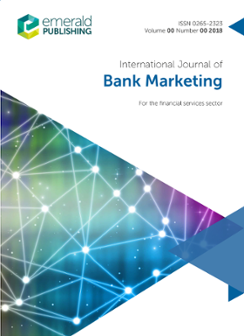共同基金营销:一个混合回顾和框架发展
IF 6.3
3区 管理学
Q1 BUSINESS
引用次数: 0
摘要
目的本研究考察了当前的动态,整合了当前的知识,引出了趋势,确定和分析了主要的研究集群,并为共同基金营销提供了未来的研究方向。设计/方法/方法利用SCOPUS数据库中的文献信息,本研究采用了顺序文献计量法(143篇文献)和内容分析法(37篇文献)。文献计量分析有助于描述性分析和科学制图,而内容分析则有助于识别和分析研究集群,并提供未来的研究方向。发现该研究确定了出版趋势、最相关的作者和期刊文章,并揭示了该领域的知识结构。书目耦合分析揭示了以下显著集群:(1)社会责任投资和投资者偏好;(2)投资者因素和特征与投资决策;(3) 外部因素、共同基金业绩和代理信息;(4) 披露和评级在塑造投资选择中的作用,以及(5)认知偏见、信息处理错误和投资者行为。最后,提出了未来的研究方向。研究局限性/含义使用不同的数据库、文献计量分析工具、研究周期或文章筛选标准进行研究可能会产生不同的结果。然而,这项研究的重要发现对这些替代方案是有力的。实际含义本研究总结了主要集群,并确定了当前文献中的差距,这有助于学者、从业者、监管机构和政策制定者理解共同基金营销的细微差别。未来的研究可能会集中在线上和线下整合的作用上,使用神经科学进行数据管理和当代投资行为模型。原创性/价值这是第一项对过去十年在高质量期刊上发表的文章进行两阶段连续混合综述的研究,能够分析共同基金营销研究的深度和广度。本文章由计算机程序翻译,如有差异,请以英文原文为准。
Mutual funds marketing: a hybrid review and framework development
PurposeThis study examines current dynamics, consolidates current knowledge, elicits trends, identifies and analyzes primary research clusters, and offers future research directions for mutual fund marketing.Design/methodology/approachUsing bibliographic information from the SCOPUS database, this study used sequential bibliometric (143 documents) and content analyses (37 documents). Bibliometric analysis aids descriptive analysis and science mapping, while content analysis facilitates identifying and analyzing research clusters and provides future research directions.FindingsThe study identifies publication trends, the most relevant authors, and journal articles and unveils the knowledge structures of the field. Analysis of bibliographic coupling reveals the following significant clusters: (1) socially responsible investing and investor preferences, (2) investor factors and traits and investment decisions; (3) external factors, mutual funds' performance and proxy information; (4) the role of disclosures and ratings in shaping investment choices, and (5) cognitive biases, information processing errors and investor behavior. Finally, it offers future research directions.Research limitations/implicationsUsing different databases, bibliometric analysis tools, study periods or article screening criteria for the study might yield different results. However, this study's significant findings are robust to such alternatives.Practical implicationsThis study summarizes primary clusters and identifies gaps in the current literature, which helps scholars, practitioners, regulators and policymakers understand the nuances of mutual funds marketing. Future studies may focus on the role of online and offline integration, using neuroscience for data m and contemporary investment behavior models.Originality/valueThis is the first study to apply a two-stage sequential hybrid review of articles published over the last decade in high-quality journals, enabling an analysis of the depth and breadth of mutual funds marketing research.
求助全文
通过发布文献求助,成功后即可免费获取论文全文。
去求助
来源期刊

International Journal of Bank Marketing
BUSINESS-
CiteScore
10.70
自引率
18.90%
发文量
54
期刊介绍:
International Journal of Bank Marketing (IJBM) aims to publish papers that relate to the marketing challenges of financial services providers around the globe.
Preference is given to empirically-based research papers that expand on existing theories (or develop new ones) on customer behaviour in financial services settings.
In addition, the journal is interested in helping academicians and practitioners in the field to better understand the discipline of financial services marketing, and as a result review papers and thought pieces are invited for submission.
 求助内容:
求助内容: 应助结果提醒方式:
应助结果提醒方式:


